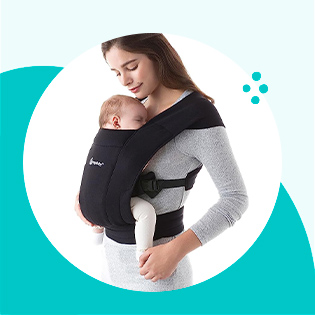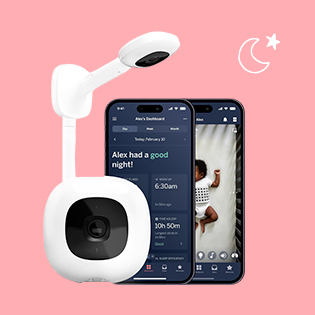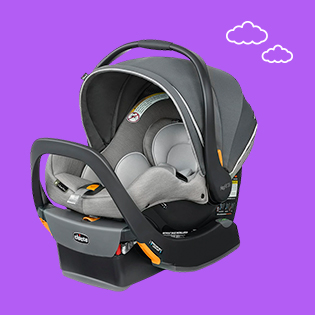Everyone told me that meeting my babies for the first time would be the best day of my life. I assumed that when my twins were born, I'd feel an instant and deep connection.
But after a complicated pregnancy, I gave birth via emergency C-section. At first, it felt like all the obstacles were behind us. The doctors placed my squishy twins on my chest, and I felt complete relief, yet I didn't feel that instant rush of maternal instinct or euphoric bliss so many other mothers have described.
I thought I might be broken. But now, I know that I am not broken, and I'm not the only mom who doesn’t feel an immediate connection after giving birth.
“Remember that bonding is a verb,” says Emily Guarnotta, Psy.D., a perinatal psychologist in South Carolina. “The process of bonding takes time, and struggling to feel connected to your baby is not an indication that you are not a good parent."
Looking back now, I understand my experience was the result of shifting hormones, the exhaustion of navigating unexpected challenges, and the sheer overwhelm of those early days. In that moment, I wish someone had told me that my bond wouldn’t hit me like a lightning bolt, but it would develop in the days and weeks to come. I wish I had been prepared to feel both emotionally overwhelmed and numb at once in the clinical chaos of the hospital.
Postpartum was truly an out-of-body experience
After giving birth, I was wheeled into the recovery room and was finally able to eat something (a sandwich had never tasted so good!), and things were going okay. However, about an hour later, I was diagnosed with postpartum preeclampsia and placed on bed rest.
Read This Next
I felt completely out of control, disoriented, and utterly exhausted, both physically and emotionally. Because of my bed rest, every time my babies cried, I had to rely on the nurses and my husband to care for them. My husband handled every diaper change, learned how to swaddle and comforted one twin while I attempted to breastfeed the other. Being unable to care for the babies by myself made me feel completely unqualified to be their primary caregiver.
At that point, I felt like I was in the room looking down on myself rather than actually being present in my own body and life. This feeling stuck with me the entire time we were in the hospital — everything blurred together in a fog of exhaustion and emotion.
My bond with them became more apparent as the days went on
Five days later, once I was finally removed from the fluorescent lights and beeping monitors of the hospital room, my bond began to bloom. I was feeling stronger physically, and my blood pressure was also under control, thanks to the medication. The baby blues began to fade away, and I felt myself learning more about my babies with each passing second. I began to recognize what their cries meant, and I knew just how to hold them to comfort them. All of this finally made me feel more capable of being a caregiver.
I remember the exact moment when that out-of-body experience began to fade. I was holding both babies and walking up the stairs. For the first time, I didn't have to think too much about the mechanics of it all. It finally felt like my body knew exactly how to balance two newborns in my arms without thinking twice about their safety.
In that moment, I realized the bond had been there from day one — there was just so much other stuff happening in the immediate aftermath of my delivery clouding my feelings.
Not feeling an immediate connection can be normal
My experience didn’t look like the narrative I had been sold around brand new motherhood — and it also didn’t look exactly like the experience other new moms I know face. But it’s important to normalize the full range of what it can feel like after birth.
“Telling moms that they will instantly feel bonded to their babies can cause moms who do not feel this way to feel like something is wrong with them," says Guarnotta.
Nearly 1 in 5 women will experience some type of difficulty bonding with their baby, according to Postpartum Support International.[1] “Many parents do not experience an instant connection with their babies, like they are led to believe,” says Guarnotta.
While it’s not uncommon to feel something other than instant bliss after giving birth, it’s also important to seek out treatment if you feel like something is off. This could mean you're dealing with a perinatal mental health condition, like postpartum depression or anxiety, says Guarnotta. “If you’re experiencing persistent sadness, emotional numbness, intrusive thoughts, intense anxiety or feel disconnected from yourself or your baby for more than two weeks, reach out to your provider.”
Therapy can help you process a traumatic birth. If you're suffering from a condition like postpartum depression, a perinatal mental health expert can point you toward proper treatment, like therapy or medication.
Opening up to others helped me more than I ever thought it could
About a week after I gave birth, I opened up to a family member about how I was feeling. She confessed something: The day she became a mother wasn’t the best day of her life either. She admitted that she, too, felt more scared and overwhelmed than joyful.
That made me feel so much relief.
"It's common to feel afraid about opening up about your struggles to bond with your baby,” says Guarnotta. "You may fear that other people will judge you or view you as a bad mom. But talking about your feelings with a trusted person can be a huge relief,” she says.
If you don't have a go-to shoulder to lean on, postpartum support groups can offer non-judgmental compassion and support, says Guarnotta. Postpartum Support International offers online support groups and peer counseling with moms who’ve experienced what you’re going through. "Mommy-and-me classes can also provide some structure to your day and help foster a connection with your baby,” she adds.
The What to Expect Community is a wonderful place to talk things out with others who may be going through something similar. You can also turn to neighborhood Facebook groups to find local mothers in your same boat.
If you're in the newborn trenches and having a hard time bonding with your baby, know that you are not alone. Many of the everyday things you’re already doing will, over time, make you feel closer to your baby, so try not to worry too much. Before long, you and your baby (or babies) will be attached to your hip — take it from me.


















































